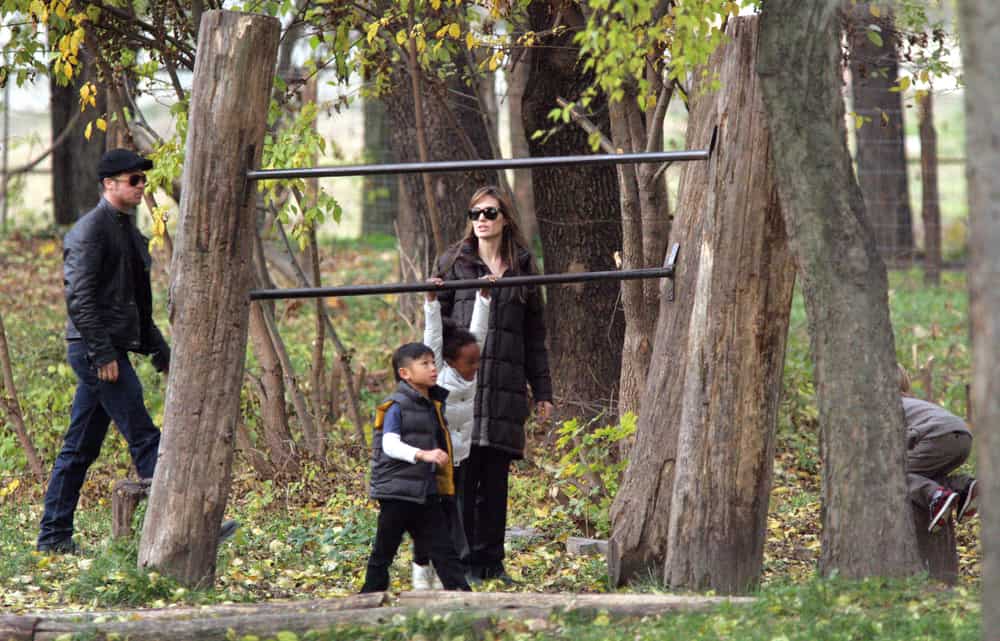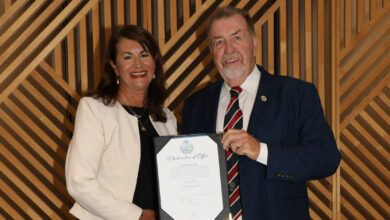When Ipswich academic Dr Susan Hopkins sees “privileged Western, white, middle-class” women Angelina Jolie, Nicole Kidman and Emma Watson parading designer labels in oppressed villages of the African jungle, she cringes at the hypocrisy of it all.
And in a recently published paper, she pulls no punches telling the academic world what she thinks.
“UN women ambassadors like Nicole Kidman and Emma Watson are well known for urging girls and women to pursue their dreams and aspirations,” she says.
“They don’t have much to say however, about what to do when one woman’s dream runs up against another’s, in an inherently unequal, competitive and unjust system – perhaps because their privileged Western, white, middle class backgrounds have not adequately prepared them for the realities of intersectional race and class based oppression.”
It’s a mouthful, but to get a simplified look at what Dr Hopkins is talking about, check out “White Saviour Barbie” on Instagram, a satirical look at how Barbie (the doll) is saving the world.
The Instagram Barbie catchphrase helps support Dr Hopkins’ point: “It’s not all about me, but it kinda is.”
Barbie goes to Africa - the Instagram account satirising the "white saviour complex"https://t.co/H0vfQYau2c pic.twitter.com/8DJ7HY39Jl
— BBC News Africa (@BBCAfrica) May 1, 2016
In essence, Dr Hopkins’ concern is that the glitterati overshadows the causes they claim to be promoting – whether it be a lack of water, health concerns, oppression or poverty.
Or more specifically, the plight of women.
“Corporate feminism is so staged,” Dr Hopkins says.
“They’re all selling a product, whether it be themselves as actors, or their fashion, or their latest film. It’s a hypocritical juxtaposition.”
When actors pose for a photo shoot, it’s not necessarily about the cause. Rather, it’s about the fashion, she argues. Public relations managers and minders are calling the shots, and while the intentions of the actors might be good, the charitable cause becomes secondary.
“Beyond the glittering surfaces of celebrity diplomacy, where attractiveness is everything, individual aspirations are limitless and model-actress activists follow the liberal feminist script, there is much that cannot be said, much that cannot be seen and much that lies beneath,” Dr Hopkins says in the conclusion of her published paper.
Nicole Kidman, she argues, isn’t the right person to be talking about domestic violence. The people she represents can’t vote to get rid of the celebrity – in other words, the celebrity is not held accountable in the way elected representatives are. This means the people who are oppressed are not permitted to speak for themselves. Instead, the publicity machine is doing the talking for them – enter the Barbie theory: “It kinda is all about me (the celebrity).”
Dr Hopkins lectures academic communication and study-management skills at the University of Southern Queensland’s Ipswich campus.
She spends considerable time speaking up for equal opportunity in education, and helping drive ways for minorities or disadvantaged groups to gain a fair tertiary education.
She says people are tired of elites. She argues that there is a community hunger for authenticity.
In the celebrity world however, everything these days is scripted – even the celebrities’ relationships with their children.

Angelina Jolie and Brad Pitt were on a recent holiday in Budapest with children children Pax, Zahara and Shiloh. How much of her humanitarian work is manufactured, argues Ipswich academic Dr Susan Hopkins.
Yet, surely the exposure of celebrities to oppressed communities helps raise awareness? Not necessarily, says Dr Hopkins.
Angelina Jolie is isolated as case in point. Stories are written about her adopted children and what a wonderful mother she is. She’s “a superwoman”.
“But they don’t talk about the fact that her grand lifestyle is all paid for. If they were transparent about it all, they’d be drawing more attention to the story of the child’s biological mother,” Dr Hopkins says.
“Raising awareness doesn’t lead to action. Just because we’ve done our little bit with a hashtag on social media doesn’t mean we’ve contributed to real change. That’s really the next step.”
Be part of the conversation

